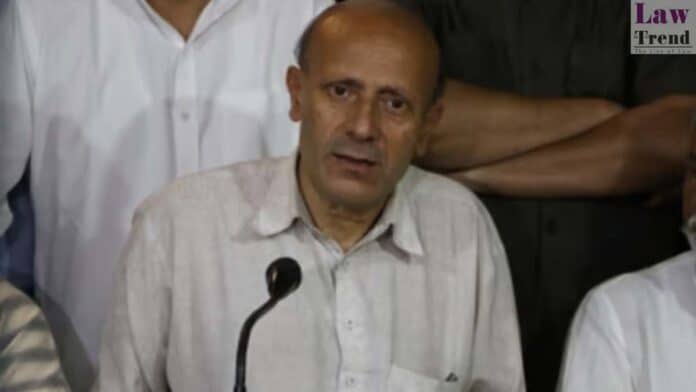The Supreme Court is now entangled in a perplexing jurisdictional dilemma over who should hear the bail plea of Jammu and Kashmir MP Rashid Engineer, currently jailed in a terror funding case. This legal quandary has prompted significant debate among legal experts and calls for a critical examination of existing laws concerning jurisdiction.
The confusion began when an NIA court declared it was unable to issue a ruling on Engineer’s bail plea, citing jurisdictional constraints as his case, investigated by the National Investigation Agency (NIA), does not fall within the purview of special courts designated for lawmakers. This issue has escalated to the Delhi High Court, and the registrar general has recently petitioned the Supreme Court for guidance.
Rashid Engineer, who was elected as the Lok Sabha MP for Baramulla in 2024, has been incarcerated at Tihar Jail since 2019 under charges laid by the UAPA in a 2017 terror funding investigation. Despite these charges, Engineer successfully contested the elections from prison.
In 2017, the Supreme Court initiated the setup of special MP/MLA courts across various states, designed to expedite the trial of criminal cases involving elected officials. However, the scope and authority of these courts have come under scrutiny, especially when intersecting with NIA investigations that are governed by their specific statutory mandates.
Senior Advocate Rebecca John questions the rationale behind separate courts for parliamentarians, arguing that ordinary citizens face the same legal system without such privileges. Meanwhile, former Delhi High Court Judge Mukta Gupta emphasizes that special courts for MPs and MLAs were established to speed up trials but are not authorized to handle cases under NIA jurisdiction unless specifically designated.
The NIA courts, established under the NIA Act of 2008, are tailored to handle cases affecting national security and have exclusive rights over their proceedings, which adds another layer of complexity to Engineer’s situation. Senior Counsel Amit Desai highlights a broader issue of rights and participation in Parliament for MPs facing legal actions, stressing that the presumption of innocence should allow MPs to continue their legislative duties until a conviction is conclusively secured.
This case has stirred discussions on the intersection of legislative intent, judicial interpretation, and administrative functionality of courts. The outcome could set a precedent for how cases involving lawmakers, especially those under special statutes like the UAPA, are handled in terms of jurisdiction, potentially leading to legislative amendments or judicial clarifications to bridge the existing gaps in the law.




